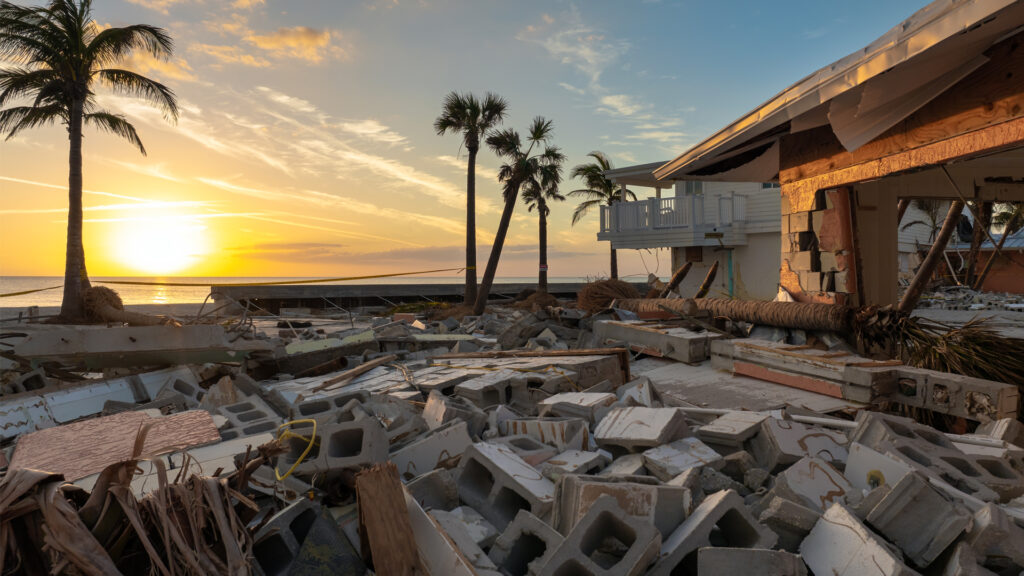By Rebecca Clark, FAU Center for Environmental Studies
- Fifty-four percent of Floridians agree with the statement, “Climate change has me concerned about being able to afford and maintain my homeowner’s insurance in Florida,” according to The Invading Sea’s Florida Climate Survey, conducted by the FAU Center for Environmental Studies.
- Florida was hit by the two most destructive disasters of 2024, according to Munich RE, an international insurance and reinsurance company. Hurricane Helene, which made landfall in September, caused $56 billion in overall losses and $16 billion in insured losses. Hurricane Milton, which hit the state two weeks later, caused $38 billion in overall losses and $25 billion in insured losses.

- Miami experienced premium increases of 322% in 2024, the highest reported increase among the largest metro areas in the U.S., according to a report by First Street Foundation, a non-profit that researches and communicates climate risk. Miami was followed by Jacksonville (226%) and Tampa (213%) in having the highest reported increases among large metro areas with at least 1 million residents.
- About 15% to 20% of Florida homeowners are uninsured, exceeding the national average, due to rising costs and availability of coverage.
- Many insurance companies have reduced cover or dropped “high-risk” homes. The number of homeowners unable to get coverage through private insurance companies has increased by 400% in recent years.
- State-backed Citizens Property Insurance Corp. was created to fill a gap for homeowners who can’t purchase insurance policies through private insurers, but is now Florida’s largest insurer. Due to its efforts to switch policy holders to private companies, the president of Citizens told state lawmakers in March that he expects it to end the year with fewer than 771,000 policies
- Florida homeowners experience more denied claims than any other state in the U.S. Citizens denied more than half its claims in 2023.
- Citizens received state approval for a maximum rate hike of 14% for 2025, with the average increase for primary residences, estimated at a 6.6% increase. This follows an ongoing legislative plan to raise the cap over time from 10% to 15% by 2026.
- Unrestricted risk-based insurance pricing could drive premiums up about 29.4% on average by 2055, according to a report by First Street Foundation. The report found that 11% of the increase is due to growing climate risks alone.
- Lawsuits also contribute to higher insurance premiums. Florida had only 14.9% of the nation’s homeowners’ claims in 2022, but accounted for 70.8% of the nation’s litigation. State lawmakers passed legislation that same year aiming to address the problem.
The Florida Atlantic University Center for Environmental Studies (CES) manages The Invading Sea. Banner photo: A home in Anna Maria Island severely damaged by Hurricane Milton (Ubuntwo, CC BY-SA 4.0, via Wikimedia Commons).
Sign up for The Invading Sea newsletter by visiting here. To support The Invading Sea, click here to make a donation. If you are interested in submitting an opinion piece to The Invading Sea, email Editor Nathan Crabbe at nc*****@*au.edu.



